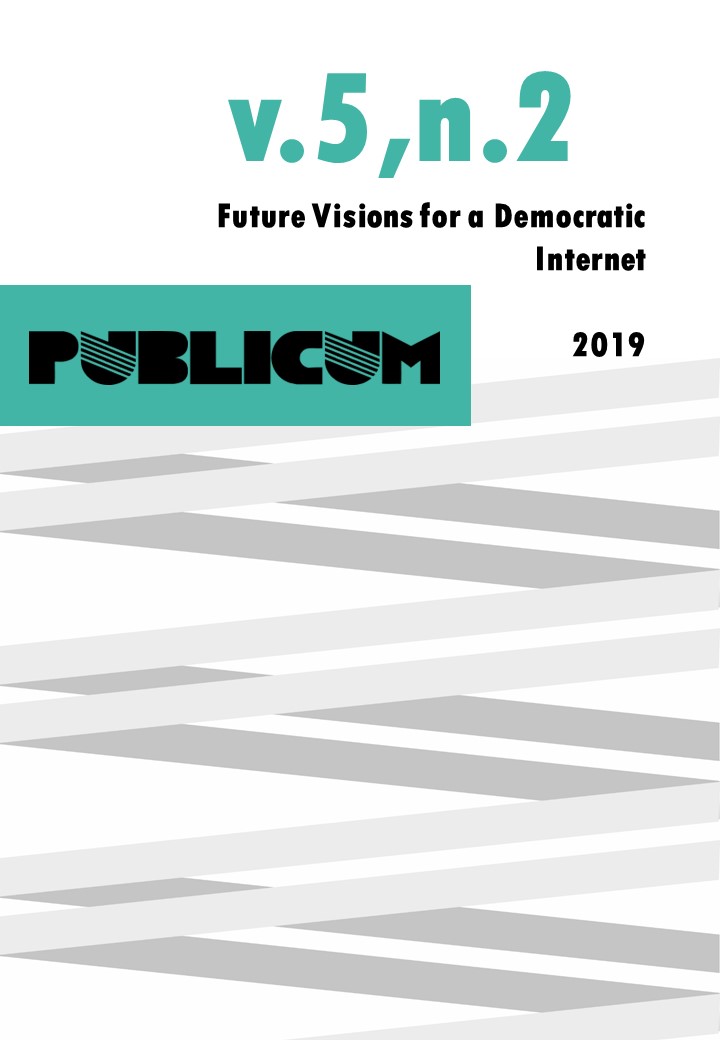A democratic dénouement? The European Union vs terrorist content online | Um desfecho democrático? A União Europeia vs conteúdo terrorista online
DOI:
https://doi.org/10.12957/publicum.2019.47209Palavras-chave:
Terrorist content, Service provider, Provider responsability. | Conteúdo terrorista, Provedor de serviço, Responsabilidade do provedor..Resumo
Abstract: This paper explores the manifold aspects of the draft Terrorist Content Online (‘TCO’) Regulation which are of clear import for the democratic future of the internet insofar as they will reshape the boundaries of what is acceptable behavior online and set out tools and procedures for deciding what must be (potentially, pre-emptively) excised from the exchanges taking place there. The piece places particular emphasis on the proposal’s ramifications for legal certainty and freedom of expression in cyberspace. In doing so, it aims to raise the most salient policy concerns, legal difficulties and technological quandaries which ripple out from the EU legislator’s laudable goal of tackling violent and terrorist content online. The article is structured as follows: after a discussion of the foundational concept of “terrorist content” which applies across the board in the draft text (II), we distinguish its headline provisions tightening up service providers’ compliance with orders to remove or disable access to terrorist content (III) from those aspects of the proposal which aim to responsibilise providers to act unassisted against terrorist content, including through the hotly-debated use of proactive measures (IV). A few concluding remarks on the future direction of this live file are offered to close (V).
Resumo: Este artigo explora os múltiplos aspectos do projeto de Regulamento de Conteúdo Terrorista Online ('TCO'), que são de clara importância para o futuro democrático da Internet, na medida em que reformularão os limites do comportamento aceitável online e definirão ferramentas e procedimentos para decidir o que deve ser (potencialmente, preventivamente) excluído das trocas que ocorrem ali. O estudo coloca ênfase particular nas implicações da proposta para segurança jurídica e liberdade de expressão no ciberespaço. Ao fazê-lo, visa levantar as mais importantes preocupações políticas, dificuldades jurídicas e dilemas tecnológicos que surgem do louvável objetivo do legislador da União Europeia de combater conteúdos violentos e terroristas online. O artigo está estruturado da seguinte forma: após uma discussão do conceito fundamental de “conteúdo terrorista” que se aplica de forma geral no texto da minuta (II), distinguimos suas disposições principais que reforçam a conformidade dos provedores de serviços com as ordens para remover ou desativar o acesso ao conteúdo terrorista (III) dos aspectos da proposta que visam responsabilizar os provedores a agir autonomamente contra conteúdo terrorista, inclusive por meio do controverso uso de medidas proativas (IV). Algumas observações finais sobre a direção futura deste arquivo ao vivo são oferecidas na conclusão (V).
Downloads
Publicado
Como Citar
Edição
Seção
Licença
O autor do trabalho declara conhecer e concordar com as regras a seguir:
1) Realizou o trabalho apresentado à revista, sendo inteiramente responsável pelas ideias e conceitos nele emitidos, que não correspondem, necessariamente, ao ponto de vista dos Editores de Publicum.
2) Obedeceu, na realização do trabalho, os princípios éticos aludidos na política de avaliação da revista[RDN1] .
3) Assume a autoria e a responsabilidade pela obra, declarando que ela não infringe quaisquer direitos de propriedade intelectual de terceiros.
4) Responsabiliza-se, integralmente, por danos de natureza moral ou patrimonial que a veiculação da obra venha a gerar a terceiros.
5) Cede à revista os direitos de reprodução, edição e primeira publicação do trabalho em qualquer meio midiático, em particular sob forma digital, em arquivo eletrônico online na internet.
6) Confere aos Editores o direito de modificar o texto apresentado, sem prejuízo de seu conteúdo, quando necessário para uniformizar a apresentação dos trabalhos e para atender as normas de edição próprias da revista.
7) Concorda com a forma final do trabalho aprovada pela revista.
8) Autoriza a divulgação do trabalho nos canais de comunicação da Faculdade de Direito da UERJ.
9) Concorda com a reprodução de pequenos trechos do trabalho em outras publicações da UERJ.
10) Reconhece que, pela cessão e autorizações acima referidas, não receberá remuneração sob qualquer modalidade, tendo estas o caráter de colaboração científica.
11) Tem ciência de que a publicação do trabalho poderá ser recusada caso não considerada conveniente, por qualquer motivo que seja, sendo que tal recusa não gera responsabilidade e/ou ônus de espécie alguma à revista ou UERJ.
[RDN1]Ver COPE.

Publicum está licenciado com uma Licença Creative Commons Atribuição-NãoComercial 4.0 Internacional.

